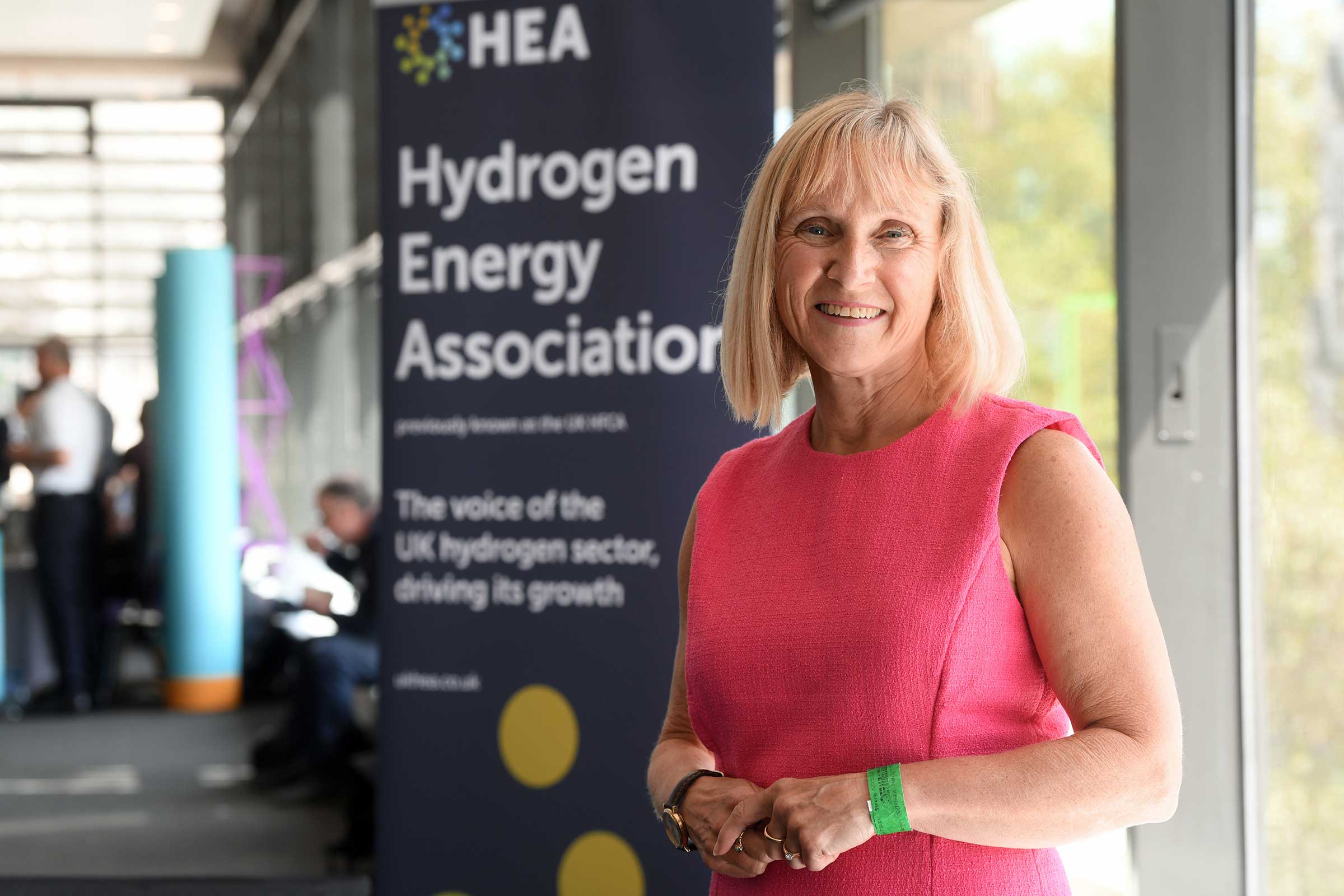Hydrogen needs to be a driving force in decarbonising non-road mobile machinery, government response concludes


The country's leading hydrogen trade association has called for hydrogen to play a greater role in decarbonising construction machinery. In a response to the DESNZ and DfT consultation on non-road mobile machinery (NRMM), released by the Hydrogen Energy Association (HEA), the organisation, which represents 120 leading hydrogen businesses across the full value chain, said the Government's vision understates the opportunity for hydrogen in comparison to electrification. It called for a more "holistic approach".
It said the "government must give more foresight to a pragmatic, long-term roadmap that details specifically how NRMM will be supported in achieving the endpoint of Net Zero by 2050." In the response, which addresses a series of questions raised by the Government, HEA CEO Celia Greaves said hydrogen is well suited to the high energy output and flexibility demands of Non-Road Mobile Machinery. "Both Hydrogen Internal Combustion Engines (ICEs) and fuel cells offer benefits for NRMM decarbonisation. Whilst ICEs offer reduced initial investment for manufacturers looking to switch from fossil fuels with zero carbon and minimal NOx emissions, fuel cells offer low operational costs, reliability and zero emissions."
The response also addressed technical barriers to the deployment of NRMM decarbonisation options, arguing that adequate consideration should be given not only to the harsh and unstable material environments in which NRMM operates but also to its mobility requirements. "Due to these challenging operating conditions, certain technologies, such as Battery Electric and Tethered Electric, may not be suitable for all NRMM applications," the response said. "Remote sites, areas with high grid constraints, and construction sites pose issues for the provision of electricity and reduce the viability of electric solutions. Hydrogen solutions are not subject to the same constraints."
"Unlike other sectors, the intensive operational demands of NRMM usually require infrastructure to transport fuel to the machine rather than vice versa, and this is challenging in transient environments such as construction. As such, refuelling solutions must be flexible and adaptive to support the changing operational demands of NRMM." Along with raising concerns, the response made several recommendations to the Government, including aligning with the EU's inclusion of hydrogen ICE as a zero-emissions technology to avoid disadvantaging UK industries and disincentivising investment.
The organisation also suggested lessons from the Netherlands and Norway could be taken. The Netherlands has introduced a Subsidy for Clean and Zero Emission Construction Equipment (SSEB), which includes separate funding strands for purchasing, retrofitting, and experimental innovation. In Norway, the Government provides subsidies for the purchase of electric NRMM, which can be as much as 40% of the additional cost of the machine compared to the diesel alternative. An incentive scheme like this for hydrogen could help it achieve its potential in decarbonising NRMM.
The HEA also recommended that the Government sponsor dedicated trials of decarbonised NRMM solutions to gather valuable operational data and demonstrate the technology's business case to the private sector. In conclusion, the response said: "Overall, the Government must recognise that the decarbonisation of NRMM cannot be satisfied by a single technology. Favouring particular technologies, such as electrification, should be avoided, as this risks undermining other solutions and any new solutions developed in the future.
"To reiterate, a well-functioning decarbonised NRMM sector will include a range of technology options which reflect the specific requirements of NRMM, such as durability, flexibility, and robustness. Hydrogen solutions are particularly well suited to meet these requirements, and any future Government policy decisions should reflect this."
About HEA
The Hydrogen Energy Association (formerly UK Hydrogen and Fuel Cell Association) is the oldest pan-UK association dedicated to supporting stakeholders in the Hydrogen sector and Fuel Cell industry. Its members cover the entire hydrogen value chain, represent more than 200,000 employees globally, and have combined revenue of more than GBP 400 billion.
Celia Greaves is at the forefront of national and international policy discussions and decision-making on a front and centre of global consciousness--the race to find effective ways to achieve net zero emissions in the battle against climate change. A forward thinker and world hydrogen leader, Celia set up the Hydrogen Energy Association in 2010 to help accelerate the deployment and development of hydrogen and fuel cells in the UK. The HEA is now the leading pan-UK hydrogen-focused association dedicated to supporting stakeholders across the entire value chain of the hydrogen and fuel cell industries.
Celia is committed to continuing to push the government to meet its targets and promises, continuing to build the HEA 120+ membership, and helping the wider public understand the true scope of hydrogen fuel cells.